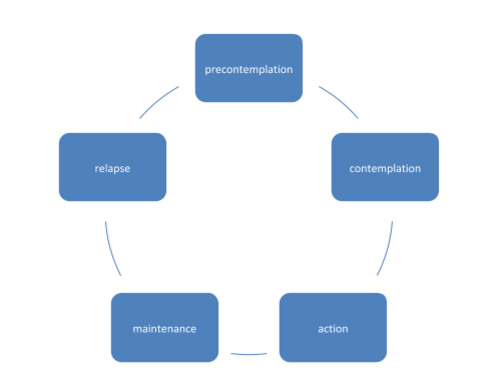
Obesity Prevention & Treatment
Living in a culture where a catch up over cake and a coffee is the norm, ample temptations dominate supermarket shelves and access to treats are cheap and easy, weight loss and weight maintenance can prove increasingly difficult.
In theory weight management is simple: Energy in (calorie intake) = Energy out (calories burned)
Therefore, to promote weight loss there needs to be a deficit in energy intake (generally 600 calories less than needed to maintain body body weight per day) or more energy needs to be burned through exercise, or ideally a combination of both to be most successful (3).
However, as most of us know it’s not quite so simple in practice, otherwise we wouldn’t be in the midst of the growing obesity epidemic!
Weight loss techniques:
Everyday calorie reduction
Make sure you check out our ‘12 Evidence-based tips to help to help you lose weight!’ for information on some effective and sustainable weight loss techniques.
Technology savvy!
Modern technology can be an excellent resource for many. There are a variety of phone applications available to record daily food and drink intakes, calculate calorie consumption and set weight loss targets.
Weight management groups
Don’t underestimate the power of peer support! Education around healthy eating, regular weigh-ins and organised physical activities are often used to promote sustainable lifestyle changes.
- NHS, local council, or workplace programmes: Have a look at what’s available in your local area or provided by your employer. Some services may be free and some may be facilitated by trained healthcare professionals, such as Dietitians.
- Commercial weight loss groups: Likely to carry a cost, but they do work well for some people. Some programmes have been shown to be effective at 12 to 18 months (16) so do your research before joining! Just be mindful they are often run by those who have used the programme to lose weight themselves and are less likely to be facilitated by healthcare professionals, so may therefore not be as appropriate for people with more complex health issues.
Book an appointment to see a Dietitian!
Some people may prefer one-to-one support to explore current dietary patterns and identify any areas with potential for change. People after a more prescriptive approach, may be guided on specific diets including calorie controlled plans, the 5:2 diet or very low calorie diet. Dietitians are the only qualified nutrition experts to advise people with specific medical conditions, so they can assess what may or may not be appropriate for an individual.
Avoid fad diets at all costs!
This includes the Atkins, cabbage soup, blood group, paleo, and the list continues…. Anything that advises the elimination of whole food groups could result in nutrient deficiencies, unpleasant side effects and are not sustainable. There are however a few diets that are backed by more positive scientific evidence, which can be of benefit if deemed safe by your healthcare team and with guidance from a Dietitian!
- 5:2 diet – this involves a significant calorie reduction on 2 days a week; 500 calories per day for women and 600 calories per day for men, which may or may not be consecutive days. On the other 5 days a healthy balanced diet is recommended but it is important not to undo all the good work by over indulging on non-fasting days. The 5:2 diet has been shown to be equally as effective as a standard daily calorie reduction for weight loss, in addition to other health benefits, as long as overall calorie reduction remains similar (17&18). However some people may find it easier to adhere to due to a more prescriptive approach and pre-planning if meals required.
- Very low calorie diet (VLCD) – this involves meal replacements with an extra allowance of non-starchy vegetables and calorie-free fluids (important to maintain hydration), generally totalling around 800 calories per day. A recent study which followed 30 participants on the VLCD for 8 weeks, demonstrated weight loss by more than 14 kg on average (19). The rapid weight loss may be desirable in some situations, as advised by a qualified healthcare professional, but the VLCD is not suitable or safe for everyone and should be done under close supervision. Normal foods should be gradually introduced after a period of no longer than 3 months as the restrictive diet is not nutritionally complete. Weight maintenance can be difficult when discontinuing the VLCD so individuals should be educated on the necessary knowledge and skills for sustainable weight loss.
Exercise regularly!
Weight management is most effective when healthy eating and an increased level of physical activity are combined. For those less mobile, have a look on the internet or seek support for more manageable chair or floor based activities.
Ensure you have good psychological support
Weight can be a complex issue that requires people to dedicate time and effort to gaining knowledge about nutrition and diet, skills in cooking healthy food and engaging with the psychological aspects of eating; being able to identify negative behaviours and find solutions.
Prochaska and DiClemente’s 1983 transtheoretical model of health behaviour change describes the way we progress, and potentially regress, through 5 stages of change as shown in the diagram below (21) .

Assessing motivation and readiness to change may be vital in identifying potential barriers to aid effective weight management (22) and support you to help implement positive life-long changes.
Unfortunately, the availability of psychological support can be limited with long waiting lists. However, for some people seeking this support may be essential to improve lifestyle behaviours for good. It is always worth asking your GP/ healthcare professional about what support is available and if you are eligible for a for a referral to local services.
